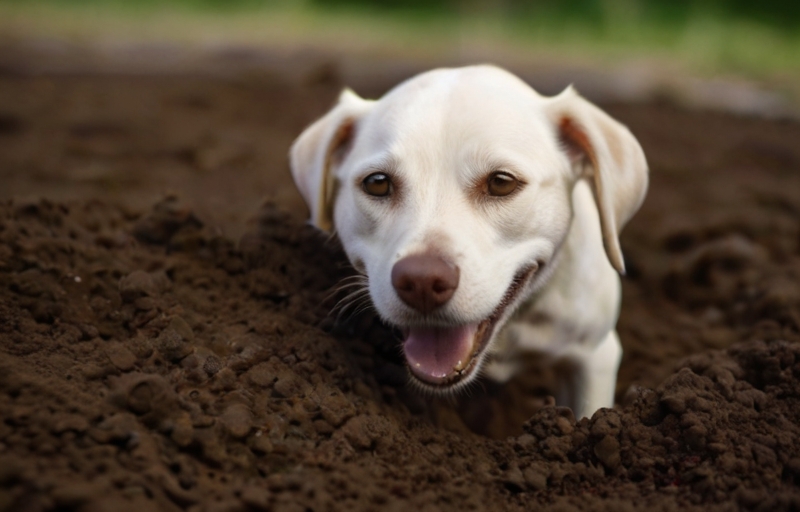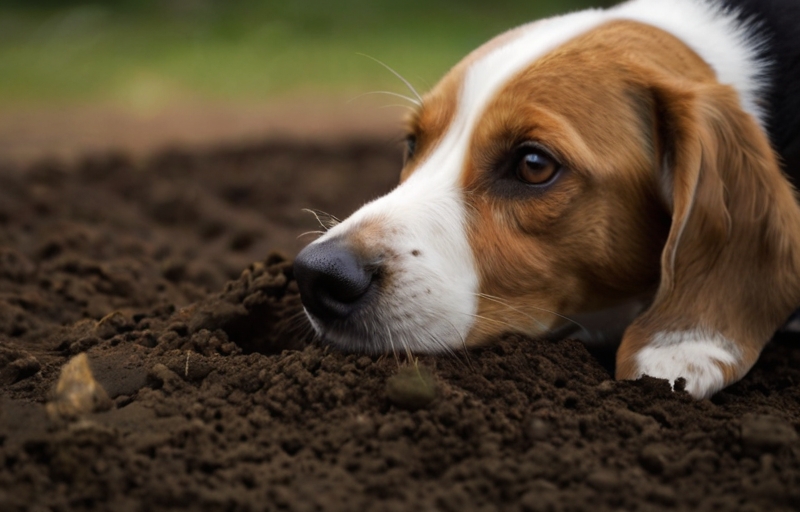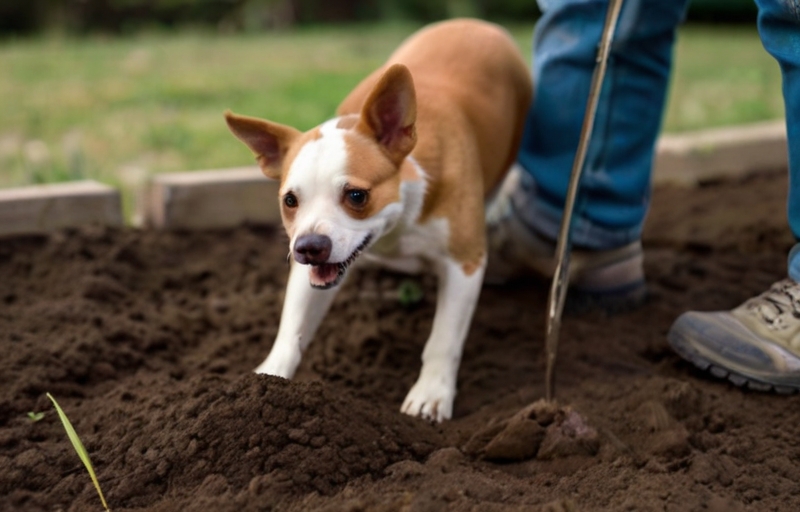Why Do Dogs Eat Soil? Dogs are known for their curious and sometimes peculiar behaviors, and one such behavior that often leaves pet owners perplexed is the habit of eating soil. While it may seem like a harmless quirk, understanding the reasons behind this behavior is crucial for the well-being of our furry companions.
Why do Dogs Eat Soil?
Curiosity and Exploration
Dogs are naturally curious creatures. Their inquisitive nature drives them to explore their surroundings, often using their mouths to investigate objects. This curiosity can lead them to taste and, in some cases, consume soil.
Nutrient Deficiency
In some instances, dogs may eat soil as a response to nutrient deficiencies in their diet. A well-balanced and nutritious diet is essential for a dog’s overall health, and addressing any nutritional gaps can help curb soil consumption.
Pica Behavior in Dogs
Pica, the ingestion of non-food items, is not uncommon in dogs. Various factors, including behavioral and medical issues, can contribute to pica behavior, making it important for pet owners to be aware of potential underlying causes.
Boredom and Stress
Just like humans, dogs can experience boredom and stress. These emotions can manifest in unusual behaviors, such as eating soil. Ensuring that your dog is mentally stimulated and stress-free can help eliminate this behavior.
Medical Issues
If your dog suddenly develops a penchant for soil, it’s crucial to consider potential medical issues. Gastrointestinal problems or dental issues could be contributing factors, and consulting with a veterinarian is essential for a thorough examination.
Ingestion of Smelly or Tasty Substances
Dogs have a keen sense of smell and taste. They may be attracted to certain smells or tastes present in the soil. Redirecting their attention to alternative activities or tastes can discourage this behavior.
Potential Risk Factors for Dogs Eating Soil

While occasional ingestion of small amounts of soil may not necessarily harm dogs, there are potential risks associated with dogs regularly eating soil or consuming large quantities. Here are some potential risks:
Gastrointestinal Obstruction:
Eating large amounts of soil can lead to gastrointestinal obstruction, especially if the soil contains rocks, sticks, or other indigestible materials. This can be a serious and potentially life-threatening condition that may require surgery to correct.
Toxic Substances:
Soil may contain harmful substances such as fertilizers, pesticides, or chemicals that can be toxic to dogs. Ingesting these substances can lead to poisoning, causing symptoms such as vomiting, diarrhea, lethargy, and in severe cases, organ damage or failure.
Parasites and Bacteria:
Soil can harbor parasites, bacteria, and other pathogens that may pose health risks to dogs. Ingesting contaminated soil can lead to gastrointestinal infections and other health issues.
Nutritional Imbalances:
If a dog is eating soil as a result of a nutritional deficiency, it may further exacerbate the imbalance. This can negatively impact the dog’s overall health and well-being.
Choking Hazard:
Small rocks or debris in the soil may pose a choking hazard to dogs, particularly smaller breeds or those with a tendency to gulp their food without chewing.
Dental Issues:
Ingesting abrasive materials like gritty soil may contribute to dental problems over time, including wear on the teeth or damage to the gums.
Preventive Measures For Dogs Eating Soil

Providing a Balanced Diet
The cornerstone of preventing soil consumption lies in providing your dog with a well-balanced diet. Consult with your veterinarian to choose the most suitable dog food that meets your pet’s nutritional needs.
Regular Vet Check-ups
Regular veterinary check-ups are essential for maintaining your dog’s health. Detecting and addressing potential issues early on can significantly reduce the likelihood of soil eating.
Environmental Enrichment
Keeping your dog’s environment enriched with toys, activities, and exercises is crucial. A mentally stimulated dog is less likely to engage in undesirable behaviors, including soil consumption.
Positive Reinforcement Training

Positive reinforcement techniques can be effective in discouraging soil eating. Rewarding good behavior and redirecting their attention positively can reshape their habits.
Avoidance Techniques
Implementing avoidance techniques, such as using bitter-tasting substances on soil or providing safe alternatives for exploration, can help break the habit.
Creating a Safe Outdoor Space
Ensure that your outdoor space is safe for your dog. Fencing off potentially harmful areas and considering landscaping choices can create a secure environment.
Understanding Individual Dogs
Recognize that each dog is unique. Tailor your approach based on factors such as age, breed, and personality to find effective solutions for curbing soil consumption.
Conclusion
In conclusion, while dogs eating soil may initially raise concerns, addressing the root causes is key to resolving this behavior. By providing a balanced diet, regular vet check-ups, environmental enrichment, and understanding individual needs, pet owners can create a healthy and happy life for their canine companions.
Read Also: Why Do Dogs Eat Dirt?
FAQs
Is it normal for dogs to eat soil?
While occasional soil consumption might not be uncommon, excessive or sudden changes in this behavior should prompt a veterinary visit.
Can providing more toys eliminate soil eating?
Enriching your dog’s environment with toys is beneficial, but addressing the underlying causes, such as boredom or stress, is equally important.
How can I discourage my dog from eating soil?
Positive reinforcement, avoidance techniques, and providing a balanced diet are effective ways to discourage soil consumption.
Should I be worried if my dog eats soil regularly?
Regular soil eating can indicate underlying issues, and consulting with a vet is advisable to rule out any medical concerns.

1 thought on “Why Do Dogs Eat Soil: Unraveling the Mystery”